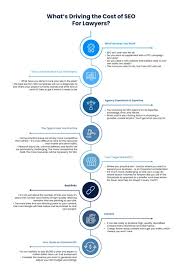
SEO, short for Search Engine Optimization, is a fundamental aspect of digital marketing that focuses on improving a website’s visibility in search engine results pages (SERPs). In simple terms, SEO is the practice of enhancing the quantity and quality of traffic to your website through organic search engine results.
At its core, SEO involves optimizing various elements of a website to make it more search engine-friendly. This includes creating high-quality content that is relevant to users’ search queries, using relevant keywords strategically, improving website structure and navigation, and building high-quality backlinks from reputable sources.
Effective SEO can have a significant impact on your online presence and business success. By ranking higher in search engine results for relevant keywords, you can attract more organic traffic to your site, increase brand visibility, and ultimately drive conversions and sales. In today’s competitive digital landscape, having a strong SEO strategy is essential for staying ahead of the competition.
SEO encompasses various components that work together to improve a website’s visibility and performance in search engines. These include on-page SEO (optimizing content and HTML source code), off-page SEO (building backlinks from external sites), technical SEO (improving site speed and user experience), and local SEO (optimizing for local searches).
SEO plays a crucial role in helping businesses connect with their target audience online and drive sustainable growth. By understanding the meaning of SEO and implementing effective strategies, you can enhance your website’s visibility, attract more qualified traffic, and achieve your business goals in the digital realm.
SEO, which stands for Search Engine Optimization, is a pivotal concept in the realm of digital marketing. It involves a strategic approach to enhancing a website’s visibility on search engine results pages through organic means. By focusing on optimising various elements such as content, keywords, and backlinks, businesses can improve their online presence and attract more relevant traffic. SEO is not just about ranking higher in search results; it’s about creating a user-friendly experience that aligns with search engine algorithms to drive sustainable growth and success in the competitive online landscape.
SEO, or Search Engine Optimization, involves the strategic practice of enhancing both the quantity and quality of website traffic by improving its visibility in organic search engine results. By focusing on relevant keywords, high-quality content, and user-friendly website structure, businesses can attract more visitors who are actively searching for products or services related to their offerings. This targeted approach not only increases website traffic but also improves the overall user experience, leading to higher engagement and potential conversions.
Keywords are a vital component of SEO as they serve as the bridge between a webpage’s content and search engine algorithms. By strategically incorporating relevant keywords into website content, businesses can effectively communicate the essence of their offerings to search engines, thereby improving their chances of ranking higher in search results. This emphasis on keywords underscores the importance of thoughtful keyword research and implementation in any successful SEO strategy.
Quality content creation and link building are pivotal components of successful SEO strategies. Crafting engaging, informative content that resonates with your target audience not only establishes your authority in your industry but also improves your website’s visibility in search engine results. Additionally, building high-quality backlinks from reputable websites enhances your site’s credibility and can significantly boost its search engine rankings. By prioritising these aspects of SEO, businesses can effectively enhance their online presence and attract a steady stream of organic traffic to their websites.
Regular monitoring and analysis of website performance are crucial elements in enhancing SEO efforts. By consistently tracking key metrics such as organic traffic, keyword rankings, bounce rates, and conversion rates, businesses can gain valuable insights into the effectiveness of their SEO strategies. This data-driven approach allows for the identification of areas for improvement, the refinement of content and keyword targeting, and the implementation of adjustments to enhance overall website visibility and search engine rankings. Through continuous monitoring and analysis, businesses can adapt their SEO tactics to meet evolving trends and algorithms, ultimately driving sustainable growth and success in the digital landscape.